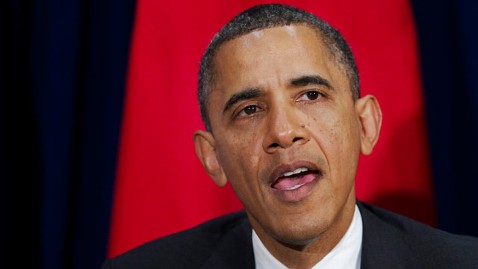Under GOP Fire for Iran Policy, White House Defends Strategy of Pressure and Pushes Russia and China for Even More

(Bloomberg via Getty Images)
HONOLULU, Hawaii — Under fire from Republican presidential candidates for failing to contain Iran’s nuclear weapon ambitions, the White House offered a robust defense of its policies, even as President Obama began the potentially arduous process of trying persuade the leaders of Russia and China to take further actions.
Ben Rhodes, President Obama’s deputy national security adviser for strategic communications, told reporters that “in the previous eight years before President Obama took office, you saw Iran go from having zero centrifuges spinning to thousands of centrifuges spinning. At the point in time when we took office, the international community was divided as it relates to Iran, and Iran was internally united. Today, we see the international community united in applying pressure on Iran, and we see unprecedented internal divisions within Iran’s political system.”
Rhodes, speaking at the Asia Pacific Economic Cooperation conference in Hawaii, said the sanctions against Iran that President Obama pushed to have implemented have “applied so much pressure that the Iranian economy has ground to a halt.”
Across the country, the president’s Republican rivals had a less flattering take.
“This is, of course, President Obama’s greatest failing from a foreign policy standpoint,” former Massachusetts Gov. Mitt Romney said Saturday at a CBS News/National Journal debate held in South Carolina. “He recognized the gravest threat that America and the world faces: … a nuclear Iran, and he did not do what was necessary to get Iran to be dissuaded from their nuclear folly.”
“If we reelect Barack Obama, Iran will have a nuclear weapon,” Romney said.
In a report issued this week, the International Atomic Energy Agency accused the leaders of Iran of trying to develop a nuclear weapon before abandoning such efforts in 2003, though the IAEA warned that some aspects of that program “may still be ongoing.”
The report detailed an Iranian program that sought “uranium suitable for use in an undisclosed enrichment program. The product of this program would be converted into metal for use in a new warhead. … The agency has serious concerns about the military dimensions to Iran’s nuclear program. After assessing carefully and critically the extensive information available to it, the agency finds the information to be, overall, credible.”
On Saturday, Obama met individually with Russian President Dmitry Medvedev and Chinese President Hu Jintao. He said after his meeteing with Medvedev that he pressed them to “shape a common response so that we can move Iran to follow its international obligations when it comes to its nuclear program.”
White House officials say there is no need for the international community to return to the United Nations to impose a new set of sanctions against Iran, given the IAEA report, since the previous sanctions contained ways to continue increasing the pressure. Officials said Obama very frankly pushed Medvedev and Hu to join the United States in taking such steps.
But there was no apparent progress to report. In their public remarks, Hu did not mention Iran, and Medvedev merely said that he and Obama had spoken about the subject.
White House officials argued that this is the beginning of the process of convincing Russia and China to go along with even more punishment of Iran, and they are confident Russia will be supportive, with China ultimately going along as well.
“The information within the IAEA reports tells a factual story of a government that’s not meeting its obligations,” Rhodes said. “And in that context, it’s necessary for the international community to respond. I think the Russians and the Chinese understand that. And we’re going to be working with them to formulate that response.”
The IAEA Board of Governors meets on Nov. 17 to discuss what steps should next be taken.
Rhodes said the “United States has moved very far” on sanctions “with other like-minded nations,” and suggested that while not a like-minded nation, Russia had in the recent past ” taken significant steps, unprecedented steps, in terms of their own sanctions, in terms of even canceling some arms contracts.” Last year Medvedev prevented Russian defense contractor Almaz-Antey from selling the S-300 surface to air missile system to Iran.
The United States will work with “European and Asian partners … to significantly dial up pressure,” Rhodes said.
At the debate, Republicans argued that the president needed to be more up-front about threatening or actually using military force against Iran. Former Sen. Rick Santorum, R-Pa., said the United States “should be working with Israel right now to do what they did in Syria, what they did in Iraq, which is take out that nuclear capability before the next explosion we hear in Iran is a nuclear one and then the world changes.”
Romney said the president “should have built (a) credible threat of military action, and made it very clear that the United States of America is willing, in the final analysis, if necessary, to take military action to keep Iran from having a nuclear weapon.”
Asked about the Republicans’ comments, Rhodes said “all options are on the table in terms of our interest in preventing the spread of nuclear weapons.” As for whether the United States would be willing to go to war, Rhodes said, “I think that what we want to do is we want to solve the challenge. And so, again, I don’t think you solve a serious foreign policy challenge through rhetoric alone.”
– Jake Tapper